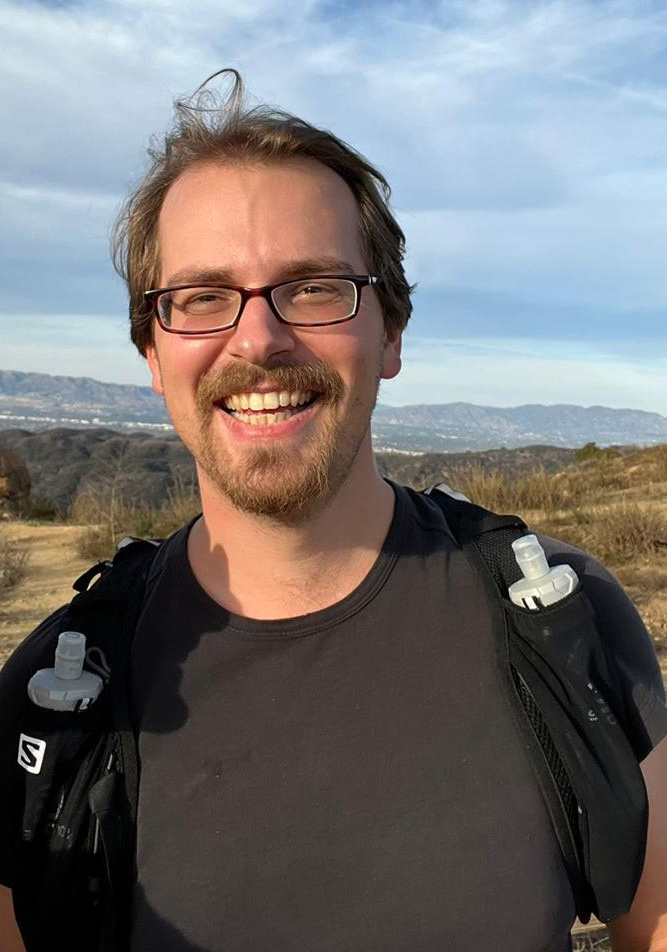Navigation auf uzh.ch
Navigation auf uzh.ch

Some people believe the weirdest things. For example that 9/11 was an inside job orchestrated by the US government rather than a terrorist attack. Or that Covid-19 was deliberately leaked from a lab in order to use vaccines to manipulate people and make a healthy profit. Conspiracy theories like these often imply that there is an evil elite pulling the strings behind the scenes, for their own benefit and to everyone else’s detriment. And they suggest alternative interpretations to the usual explanations for major events such as 9/11 or the Covid-19 pandemic.
Historically speaking, conspiracy theories aren’t a new phenomenon. As early as the 18th century, groups such as the Freemasons or the Illuminati, a short-lived secret society made up of intellectuals and aristocrats in Bavaria, were accused of manipulating the levers of power in pursuit of their ultimate goal of ruling the world. Social media have now accelerated the spread of conspiracy theories, and the Covid pandemic in particular has pulled the issue from the fringes of society out into the open.
This is the subject that religious studies scholars Loïc Bawidamann and Rafael Walthert are exploring. Last fall, Bawidamann completed his Master’s thesis (Von Reptiloiden, Verschwörungen und dem Kampf gegen den Mainstream) at the chair of Rafael Walthert. His study was focused on alternative media in Switzerland that spread various conspiracy theories. “One thing these theories have in common is that they all challenge the current authorities in our society,” says the researcher – that is, members of government, policy-makers, scientists as well as industry and media representatives.
Most conspiracy theories are also based on the same underlying idea that nothing ever happens by chance, that there’s a plan which was set in motion by those in the know. According this view, nothing is ever as it seems – it’s all connected somehow. In this way, conspiracy theories follow patterns of religious thinking, says Rafael Walthert. The theories claim that there are transcendent malevolent powers lurking in the dark (i.e. the aforementioned politicians, industry representatives or lizard people, or sometimes all of them conspiring together) that are responsible for the events unfolding in the real world; they divide the world into good and evil, and build a comprehensive view of the world. This simplistic good vs bad thinking makes it very easy to conjure up enemies and use them to further a political agenda, as the example of QAnon in the US recently illustrated.
Many conspiracy theories paint a picture of the world that is completely absurd and irrational – so why are so many people still drawn to them? This is the question that Loïc Bawidamann and Rafael Walthert are trying to answer. “As religious studies scholars, we assume that people believe many different things. What we want to find out is how this happens, without judging whether or not doing so is rational,” they say. Among other things, Bawidamann’s study shows that there are close links between spiritual or religious beliefs and believing in conspiracy theories. For example, people from an evangelical or esoteric background appear to be particularly susceptible to these theories. Researchers often use the term conspirituality, first coined in 2011 by sociologists Charlotte Ward and David Voas, to describe this overlap between spiritual or esoteric ideas and conspiracy theories.
“Conspiracy theorists often create whole chains of conspiratorial ideas,” says Loïc Bawidamann, “it’s a process that can start with one topic, say Covid, and over time go on to include more and more elements from other conspiracy theories.”
These ideas are offered a platform by alternative online media such as kla.tv or legitim.ch, which Bawidamann studied in his Master’s thesis. The websites feature a smorgasbord of articles on a variety of topics that have been given a conspiratorial spin – from genetic engineering and vaccines to mass government surveillance.
“The unwritten law is that articles shouldn’t actively contradict others and to let different worldviews stand side by side,” says Loïc Bawidamann. While conspiracy theorists may challenge many things, they rarely question themselves. And yet, not everyone who visits these platforms is automatically a proponent of conspiracy theories. “We shouldn’t underestimate the entertainment factor these stories can have,” Rafael Walthert concedes, “they may tickle our curiosity, without us believing everything they’re saying.”
Religious studies scholars aren’t the only ones interested in learning how people come to believe conspiracy theories; the issue is also an interesting topic for philosophers. “One reason why people latch on to these theories could be confirmation bias,” says Sebastian Schmidt , a young UZH researcher specializing in epistemology. In psychology, confirmation bias refers to people’s tendency to believe things that are consistent with their existing beliefs.
We therefore tend to look for information that confirms our opinions, and we also remember these ideas much more easily. This bias is further amplified online by algorithms that filter the information presented to us by search engines and social media based on our profiles. “We all have some confirmation biases, and this means we may also act irrationally,” says Sebastian Schmidt, “but these biases seem to be particularly strong among conspiracy theorists.”

Opinions that are absurd and removed from reality can still be reasonable.
In an essay published by the German publishing house Reclam, Sebastian Schmidt explores how reasonable the followers of conspiracy theories actually are. His surprising conclusion is that they’re much more reasonable than you’d think. “Even opinions that are absurd and removed from reality can be reasonable and coherent,” says the philosopher, “in other words, you can follow a reasonable path and still arrive at a wrong opinion.”
In addition, it may make sense to hold on to a wrong opinion for practical reasons. “For example, I can believe that there are guardian angels watching over me because it’s reassuring and makes me feel safer,” says Sebastian Schmidt, “from an epistemic point of view, that’s completely irrational, because there is no evidence that guardian angels exist, but in practical terms it can still help me lead my life.” Believing in conspiracy theories could have a similar effect, especially as it can make people feel like they’re something special and among the select few who are able to see the world as it really is, while all the others keep on deluding themselves.
Sebastian Schmidt thinks the debate about conspiracy theories also points to a crisis of intellectual confidence. “Our scientific community is crumbling,” says the UZH philosopher, who cites the Covid-19 pandemic as evidence for his assertion. Schmidt strongly believes that the pandemic very much lent itself to finding alternative explanations. At first, scientists were uncertain about many things and sometimes gave contradictory messages – which fueled speculations while also creating distrust, according to Schmidt. Rafael Walthert agrees. “I’ve spoken with quite a few people recently who feel like the world is going through some fairly wild times. They said that they don’t understand everything that’s going on and also don’t know if they’ve always been told the truth,” says the UZH professor. “Religion no longer gives them a point of reference, and nor does science.” This void could perhaps be filled by conspiracy theories.
“Many people also simply have no connection with science,” says Sebastian Schmidt. He himself comes from a non-academic family and had many controversial discussions about the pandemic with his parents. But he strongly believes that these discussions are urgently needed. “Society is becoming increasingly polarized, and many of us no longer think the others are reasonable. It is a threat to democracy, since we’re speaking with each other less and no longer hear other opinions.” This is why we need to keep having conversations with people who don’t share our opinions, even if their worldviews are completely different to ours. Assuming that everyone is actually more reasonable than they seem should give us hope that this will succeed, says the philosopher.